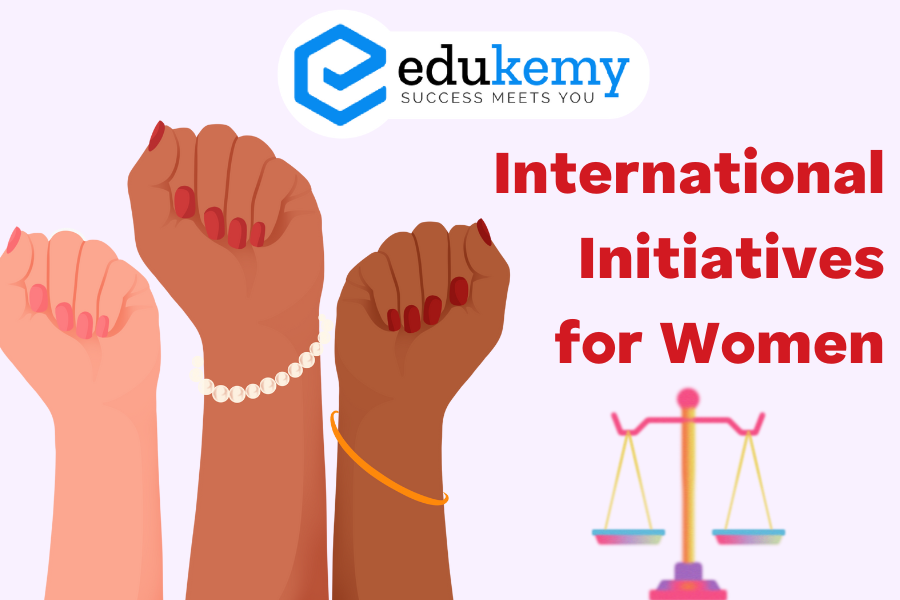
International initiatives for women have become increasingly prevalent in recent years, reflecting a global recognition of the importance of gender equality and women’s empowerment. These initiatives encompass a wide array of efforts aimed at addressing various challenges faced by women worldwide, including economic disparities, lack of access to education and healthcare, gender-based violence, and underrepresentation in decision-making roles. Through collaborative efforts involving governments, non-governmental organizations, international agencies, and grassroots movements, these initiatives strive to create a more equitable and inclusive world where women can thrive and contribute fully to society. From initiatives focused on economic empowerment and entrepreneurship to those tackling gender-based violence and promoting political participation, international efforts for women aim to break down barriers and foster positive change on a global scale.
Contents
- 1 FAQs
- 1.1 1. What are International Initiatives for Women?
- 1.2 2. How do these initiatives contribute to gender equality?
- 1.3 3. What are some key challenges these initiatives face?
- 1.4 4. Can you provide examples of successful international initiatives for women?
- 1.5 5. How can individuals contribute to these international initiatives?
- 2 In case you still have your doubts, contact us on 9811333901.
International Initiatives for Women
- India is a signatory to several UN Conventions, including the Convention on Elimination of all Forms of Discrimination against Women (CEDAW), the Beijing Platform for Action, and the Convention on the Rights of the Child. These international agreements reflect India’s commitment to protect and empower its women and girls.
- India’s recent endorsement of the ambitious 2030 Sustainable Development Goals (SDGs) will have a significant impact on the course of development. These goals aim to address key challenges like poverty, inequality, and violence against women. India’s commitment to these goals is crucial for their global success.
FAQs
1. What are International Initiatives for Women?
Answer: International initiatives for women are global efforts and programs aimed at promoting gender equality, empowering women, and addressing issues that disproportionately affect women, such as education disparities, health care access, economic participation, and violence. These initiatives are often spearheaded by international organizations, governments, non-profits, and civil society groups. Examples include UN Women’s HeForShe campaign, the World Bank’s Gender Equality, Poverty Reduction and Inclusive Growth initiative, and the Global Fund for Women.
2. How do these initiatives contribute to gender equality?
Answer: These initiatives contribute to gender equality by:
- Raising Awareness: Educating the global community on the importance of gender equality and the specific challenges women face.
- Policy Advocacy: Lobbying for legal and policy changes that support women’s rights and equal opportunities in various sectors such as work, politics, and education.
- Capacity Building: Providing women with the tools, resources, and skills needed to achieve economic independence and leadership roles.
- Supporting Grassroots Movements: Funding and supporting local women-led organizations to address issues specific to their communities.
- Promoting Education: Ensuring girls and women have equal access to education and vocational training.
3. What are some key challenges these initiatives face?
Answer: Key challenges include:
- Cultural Barriers: Deep-rooted cultural norms and practices can hinder the progress of gender equality initiatives.
- Funding Limitations: Adequate and sustained funding is crucial but often difficult to secure, impacting the scalability and sustainability of these programs.
- Political Resistance: In some regions, political environments are resistant to change or hostile to women’s rights, making it challenging to implement initiatives.
- Measuring Impact: Quantifying the success and impact of gender equality initiatives can be complex due to the multifaceted nature of gender issues.
- Coordination Among Stakeholders: Ensuring effective collaboration and avoiding duplication of efforts among various organizations and governments can be challenging.
4. Can you provide examples of successful international initiatives for women?
Answer: Yes, several initiatives have made significant impacts, such as:
- The Global Fund for Women: Supports women’s rights initiatives around the world, funding grassroots projects that empower women.
- UN Women’s HeForShe Campaign: A solidarity campaign for gender equality that invites men and boys to be advocates for change, gaining widespread international support.
- The Malala Fund: Founded by Malala Yousafzai, focuses on advocating for girls’ education in regions where they are most likely to miss out on secondary education.
- Women’s Global Empowerment Fund: Provides women in Northern Uganda with microcredit loans, education, and vocational training to support economic independence.
5. How can individuals contribute to these international initiatives?
Answer: Individuals can contribute in several ways:
- Educate Yourself and Others: Learn about gender equality issues and share this knowledge within your community.
- Support Financially: Donate to organizations working on the ground to empower women globally.
- Volunteer: Offer your time and skills to local or international NGOs focused on women’s rights.
- Advocate: Use your voice to advocate for policies and laws that promote gender equality, both locally and internationally.
- Engage in Dialogue: Participate in conversations around gender issues to raise awareness and challenge discriminatory norms.
In case you still have your doubts, contact us on 9811333901.
For UPSC Prelims Resources, Click here
For Daily Updates and Study Material:
Join our Telegram Channel – Edukemy for IAS
- 1. Learn through Videos – here
- 2. Be Exam Ready by Practicing Daily MCQs – here
- 3. Daily Newsletter – Get all your Current Affairs Covered – here
- 4. Mains Answer Writing Practice – here

